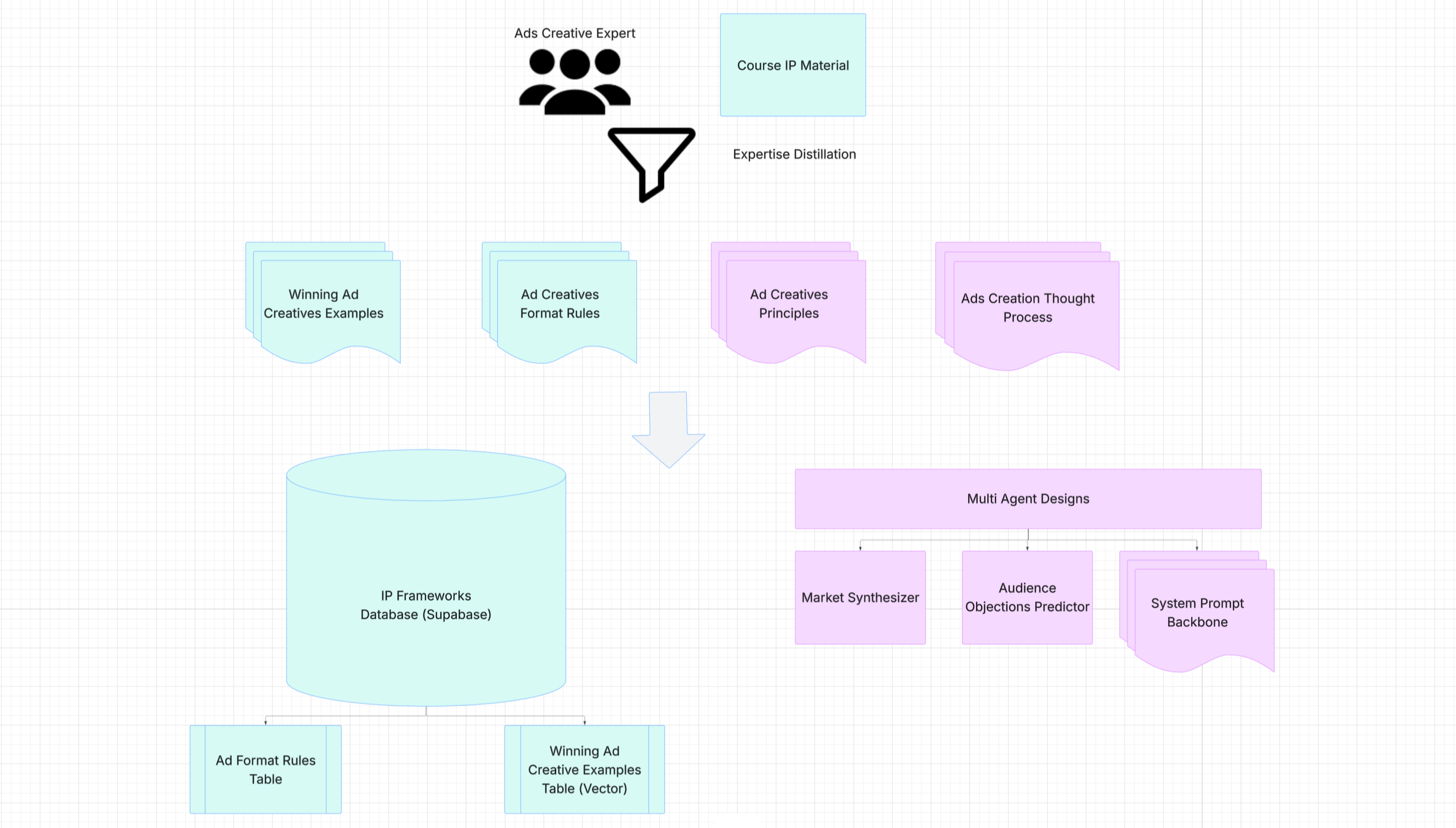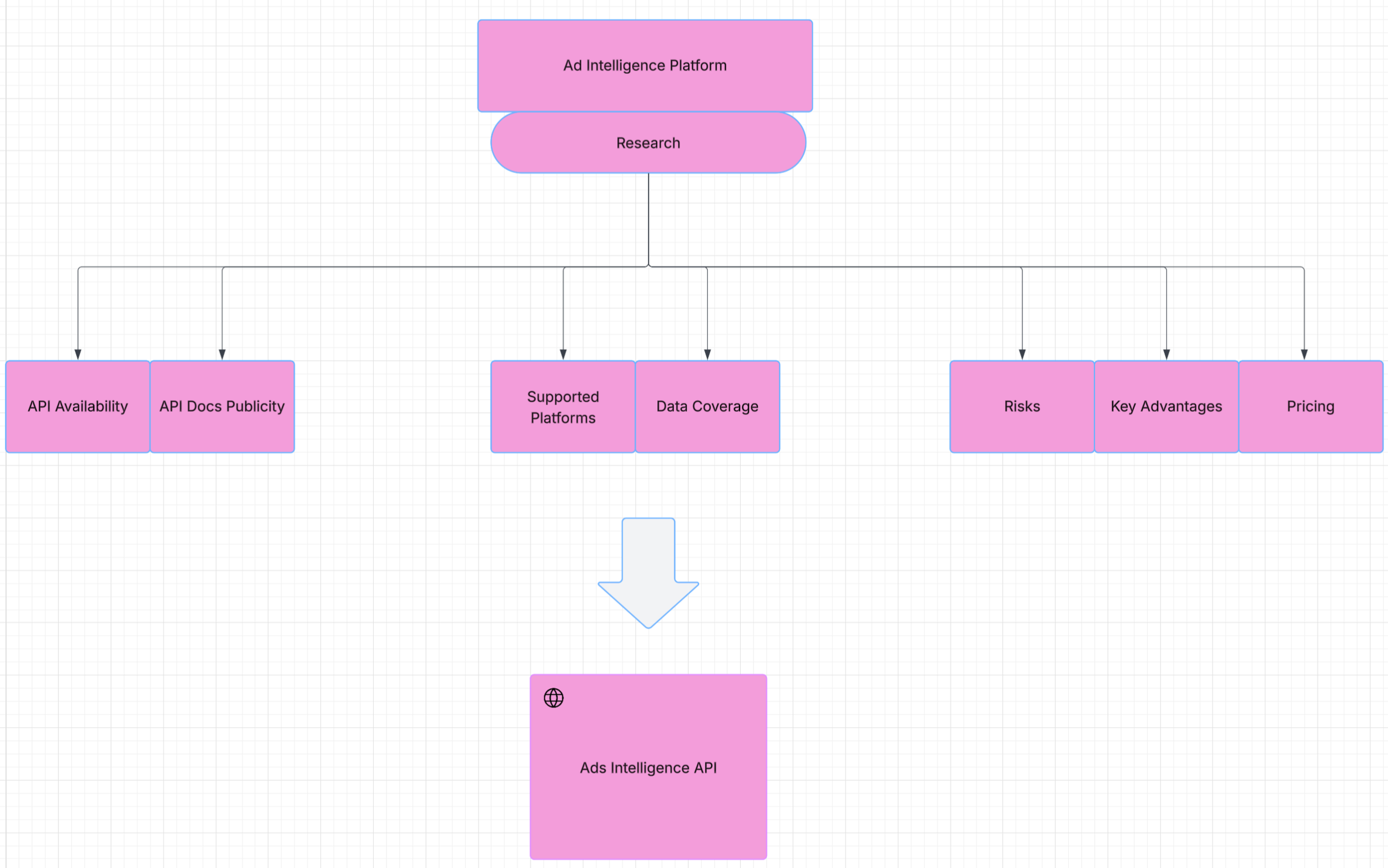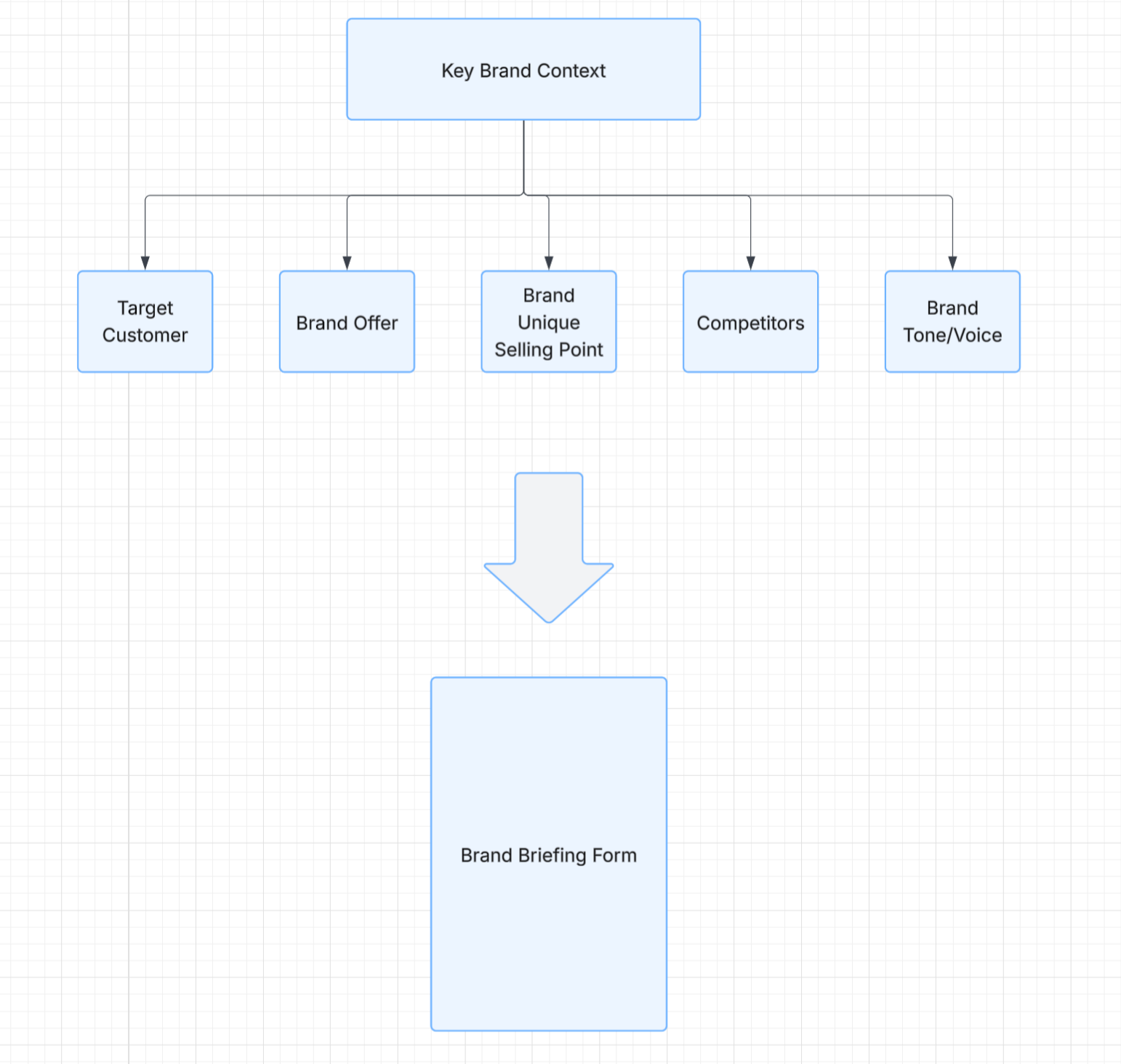
The process for turning creative expertise Into a scalable system
The Expertise Bottleneck
An E-commerce Growth Consultancy was facing a classic, and commercially critical, "Expertise Bottleneck." Their single greatest value-generating asset, their proprietary methodology for creating world-class ad creatives, was simultaneously a source of their market advantage and primary bottleneck to their future growth.
This priceless, creative intelligence was trapped in two, unscalable forms:
The intuitive, "gut-feel" knowledge of their Marketing Creative Experts.
The passive, static format of their video course IP.
The founder had already attempted to solve this problem himself using the commodity tools of the market (custom GPTs), and he had discovered that these tools were not capable of capturing the nuanced, "PhD-level" Intelligence and creative insight required to create high-quality ad creatives at scale.
They were sitting on a mountain of gold, with no machinery to mine it.
System-Focused Approach
Through their ambition, they knew there was a vast potential they were sitting on, however it was unclear on what was possible with the full capabilities of AI.
With the market being saturated with simplistic, "one-size-fits-all" solutions, our initial audit concluded that any "tool-first" approach was doomed to fail.
The challenge was not technical; it was architectural.
The architectural decision was clear: we would not build another simple tool. We would lead a process to create a Reasoning System, a fusion of their Core IP and Codified Expertise as Fuel, an Reasoning System as the Engine, and a re-designed Human-AI Process.
Foundational Audit:
Architectural Blueprint
Our engagement began with our foundational first phase: the Foundational Audit. This paid sprint lasted four weeks and was a program designed to achieve absolute, ground-truth clarity on the data, workflow, roles, and tools before a single line of code was written.
The outcome of this phase was an Architectural Blueprint, a clear roadmap on the path to a successful Reasoning System deployment.
This was a deep, strategic, and collaborative process to:
Codify the Expertise: Perform a deep Expertise Distillation with their Marketing Lead, transforming their knowledge into a formal Knowledge Codex.
Design the Engine: Design a multi-agent system that takes in multiple sources of information to replicate this expertise.
Augment the Human: Design a new, Human-AI Collaboration Protocol to elevate their team into strategic Pilots.
Codifying Creative Intelligence
The first stage of the Foundational Audit was about distilling the raw expertise of their Marketing Lead and structuring the data into a format that AI could accurately execute on.
What began as intuition and static course IP was transformed into a living knowledge architecture:
Expertise Distillation: We formalized the implicit knowledge of the Ads Creative Expert and cross-referenced it with their proprietary training materials.
Codified Principles & Rules: That knowledge was turned into Ad Creative Principles, Format Rules, and Designs for the Multi-Agent System, creating a backbone that could be consistently applied.
IP Frameworks Database: We structured the schema for a Supabase-powered knowledge base that would contain both symbolic rules (format tables) and vectorized creative examples.
This process turned scattered expertise and static material into a repeatable, machine-readable system. Instead of relying on one person’s intuition, the company now had an IP engine, a permanent creative foundation that scaled beyond the limits of human memory and stamina.
Real-Time Market Analysis
Creative strategy in advertising isn’t static; it’s alive, shifting daily with competitor moves, customer behavior, and cultural trends. A system built only on past knowledge would quickly drift out of sync with reality.
This is why we extended the Reasoning System with a real-time market analysis layer.
We performed a rigorous research sprint to identify the best platform to use as the information stream for the latest market insights. We analyzed availability, platform coverage, and data fidelity.
This allowed us to add a continuous stream of market signals into the creative process, transforming it from a closed-loop system into a market-responsive engine.
Now, instead of relying solely on the Marketing Director’s static heuristics, the system is able to detect live shifts in competitor tactics, identify new winning creative formats, and anticipate risks and objections before they even show up in campaign performance.
The result: ad strategies that are not just grounded in expertise, but calibrated to the pulse of the market in real time.
Brand Contextual Guidance
One of the most important conclusions of the audit was that no matter how advanced the system became, it could not lose the directional influence of the brand itself.
Creative excellence isn’t just about structure or efficiency; it’s about alignment. Every ad needed to reflect the company’s voice, offer, positioning, and competitive edge. Without this, the system risked becoming fast but directionally lost.
To solve this, we designed a Brand Briefing Form, a structured mechanism for the creative experts to input the key elements of brand identity:
Target Customer
Core Offer
Unique Selling Proposition
Competitive Landscape
Tone and Voice
This briefing form became the north star of the entire Reasoning System. By capturing brand DNA upfront, every downstream agent was constrained and guided by a shared, machine-readable source of truth.


